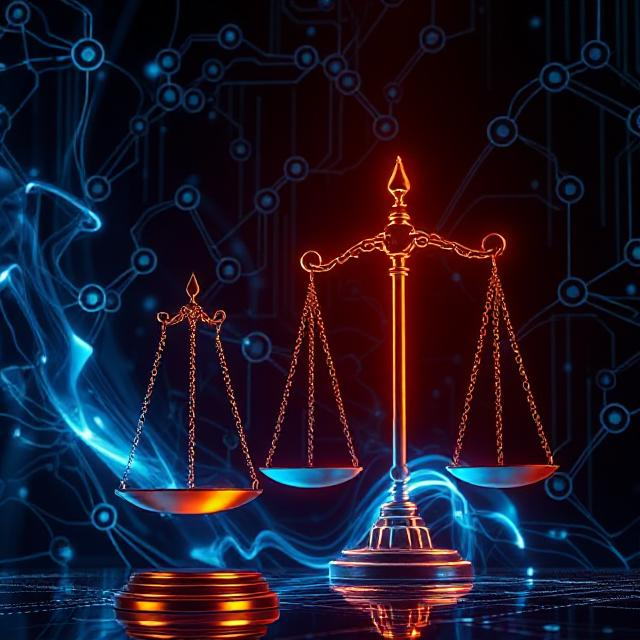The Future of Lawyer Discovery: AI and Smart Filtering

Finding the right lawyer is evolving fast. With AI and smart filtering technologies, legal directories like Lawyerranks are transforming how clients discover legal professionals — faster, smarter, and more accurately than ever before.
The Future of Lawyer Discovery: AI and Smart Filtering
The legal industry is undergoing a digital transformation. At the heart of this shift is how people find and evaluate legal professionals. Traditional lawyer directories once relied heavily on static listings, manual searches, and subjective reviews. Today, AI-driven platforms and smart filtering are reshaping lawyer discovery into a dynamic, personalized, and data-backed experience.
What’s Wrong With Traditional Lawyer Discovery?
Most people seeking a lawyer begin with a web search or a recommendation from a friend. While that’s not inherently flawed, it's limited. Traditional directories often overwhelm users with lists of names, leaving them to sift through dozens of profiles with little guidance. Filters — when available — are often basic, such as location and practice area.
Clients frequently ask: Who’s actually good? Has this lawyer handled a case like mine? Do they charge reasonable fees? With minimal transparency and insight, finding the “right” lawyer is largely a gamble.
The Rise of AI in Legal Discovery
AI is transforming how clients connect with legal professionals. Platforms like Lawyerranks use machine learning to analyze thousands of data points — case outcomes, client reviews, peer endorsements, legal articles, disciplinary records, and more — to generate dynamic lawyer rankings.
Instead of presenting every lawyer equally, AI surfaces lawyers who are statistically more likely to be a fit for the client’s specific legal needs. Over time, these algorithms refine their recommendations based on user behavior, outcomes, and feedback.
Smart Filtering: Beyond Practice Areas
Smart filtering takes traditional search filters to a new level. On Lawyerranks, filters are powered by data and AI context. Users can narrow down lawyers by:
- Case experience (e.g., “won at trial,” “settled under 90 days”)
- Client demographics (e.g., small business, family law for men, startup founders)
- Languages spoken
- Fee structure (e.g., contingency, flat rate, free consult)
- Response time and communication style
- Reputation trends over time
This means a user isn’t just looking at a list of divorce lawyers — they’re finding divorce lawyers who respond within 24 hours, speak Spanish, have high ratings from other single fathers, and are known for quick, affordable settlements.
Personalized Matching
Platforms like Lawyerranks also offer personalized lawyer matches. Clients answer a few key questions about their legal issue, budget, timeline, and preferences. The system then uses AI to recommend a shortlist of lawyers who best match those needs — similar to how streaming services recommend movies or dating apps suggest matches.
This is especially powerful for users unfamiliar with legal terminology. Instead of asking, “Do you need a tort lawyer?” the system might ask, “Were you injured in an accident caused by someone else?”
Trust Signals and Transparency
Another major benefit of AI-based platforms is enhanced transparency. Lawyerranks can display AI-analyzed summaries of reviews, highlight consistent patterns (e.g., “known for aggressive negotiation”), and alert users of past ethical issues. These data-backed trust signals help clients make informed decisions with confidence.
Benefits for Lawyers
Lawyers also benefit from these innovations. Rather than competing in overcrowded listings, they can attract more relevant leads — clients who are a better fit for their practice style, experience, and niche. AI-powered directories can even provide performance analytics, helping lawyers understand how they compare to others in their field and where they can improve.
The Road Ahead
AI and smart filtering are not just trends — they are the future foundation of legal discovery. As legal tech platforms continue to evolve, expect even more advanced capabilities: real-time chat assistants, document analysis, success-rate predictors, and deeper client-lawyer compatibility metrics.
For clients, this means a faster, more confident path to the right legal help. For lawyers, it means better visibility, efficiency, and alignment with ideal clients. At the intersection of AI and legal services, directories like Lawyerranks are building a smarter, fairer legal marketplace for everyone.